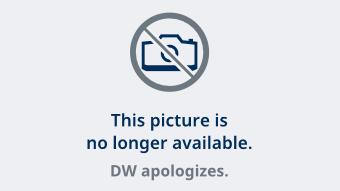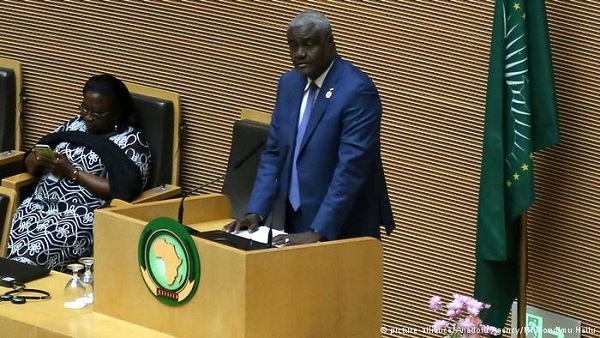Chadian Foreign Minister Moussa Faki is the new chairman of the African Union Commission.
At first it looks like good news. Morocco is a political heavyweight. As the sixth biggest economic power in Africa, it is also relatively well off. Thus, quite a few of the heads of state and government at the meeting in Addis Ababa had King Mohammed VI’s state coffers in mind when they voted “yes” or “no.”
The African Union’s finances have fallen in even greater disrepair after it stopped being subsidized by Libya’s Gadhafi. 70 percent of its budget depends on donations.
Union? Forget it!
But the Morocco question is a very touchy one. The liberation movement Polisario, which fights for the Western Sahara’s independence, was not alone in lobbying hard to keep Rabat from returning to the AU.
Alongside it were political and economic Anglophone heavyweights like Nigeria, Kenya and South Africa. Most important of all, Polisario had the support of Morocco’s neighbor Algeria, which plays an important role in the AU. But a majority of Francophone countries among the 53 member states sided with Rabat.
Why is this a problem? Because the AU was already divided by a long conflict over the pros and cons of leaving the International Criminal Court (ICC).
Now the rift is even deeper: It splits the AU between supporters of Morocco and advocates for the Sahrawi, between Anglophone and Francophone countries, North and South, East and West. As the past has shown and all present promises notwithstanding, Morocco will spare no efforts in trying to oust Western Sahara from the AU, which will have negative consequences for the AU’s strength as an alliance.
This makes one item on the agenda, which got little attention because of the election of a new Commission chairperson and the decision on Morocco’s return, all the more important: the reform efforts, which the AU is now addressing with new energy after the failure of the last attempt, ten years ago.
One does not have to like the authoritarian ruler of Rwanda, President Paul Kagame. But the reform package he prepared after being commissioned by the AU has some good ideas, not only for financing but also for a structural reform of the largely ineffectual organization.
A reform is urgently needed: The chairperson of the Commission has little power since all important decisions are taken at the meetings of heads of state and government. That includes the nomination of important commissioners, for example the Commissioner for Freedom and Security. This is akin to a head of state having to govern without having a say in the composition of his cabinet.
Even worse are the overlapping areas of authority between regional economic blocs and central organs of the AU – the result is standstill or chaos or both.
Just as important is the self-financing mechanism meant to generate US $1.2 billion (1.1 billion euros) to cover 100 percent of the administrative budget and at least a quarter of the costs of the AU’s peace missions. Once again, the gap between the AU’s visions and reality is huge: As of now, only five out of 53 member states contribute to the new mechanism.
Lack of unity
This is why the election of Chadian Moussa Faki to chair the AU Commission is only marginally interesting and then mostly because it means francophone countries now hold both the AU’s presidency and the Commission’s chairmanship. Also, the former Chadian foreign minister is likely to prioritize the war on terrorism.
“We are entering very turbulent times,” outgoing Commission chairperson, Nkosazana Dlamini-Zuma, said in Addis Ababa. Referring to US President Trump’s ban on immigration and its consequences for Africa she added: “This is one of the greatest challenges to our unity and solidarity.” Her words could just as easily apply to the situation of the African Union, which these days shows so little unity.

Source: DW/Luger Schadomsky



